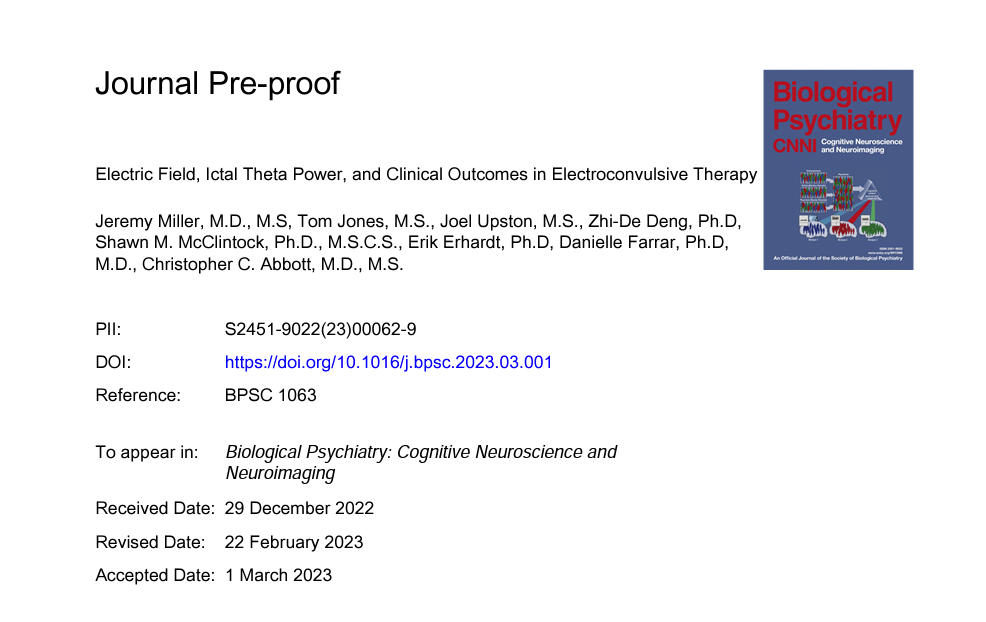Electric Field, Ictal Theta Power, and Clinical Outcomes in Electroconvulsive Therapy.

Out on PubMed, from investigators in the USA, is this paper: Electric Field, Ictal Theta Power, and Clinical Outcomes in Electroconvulsive Therapy. Miller J, Jones T, Upston J, Deng ZD, McClintock SM, Erhardt E, Farrar D, Abbott CC. Biol Psychiatry Cogn Neurosci Neuroimaging. 2023 Mar 14:S2451-9022(23)00062-9. doi: 10.1016/j.bpsc.2023.03.001. Online ahead of print. PMID: 36925066 The abstract is copied below: Background: Electroconvulsive therapy (ECT) is efficacious for treatment resistant depression. Treatment-induced cognitive impairment can adversely impact functional outcomes. Our pilot study linked the electric field to ictal theta power from a single suprathreshold treatment and ictal theta power to changes in phonemic fluency. In this study, we set out to replicate our findings and expand upon the utility of ictal theta power as a potential cognitive biomarker. Methods: Twenty-seven subjects (nine male and eighteen female) received right unilateral ECT for treatment resistant
